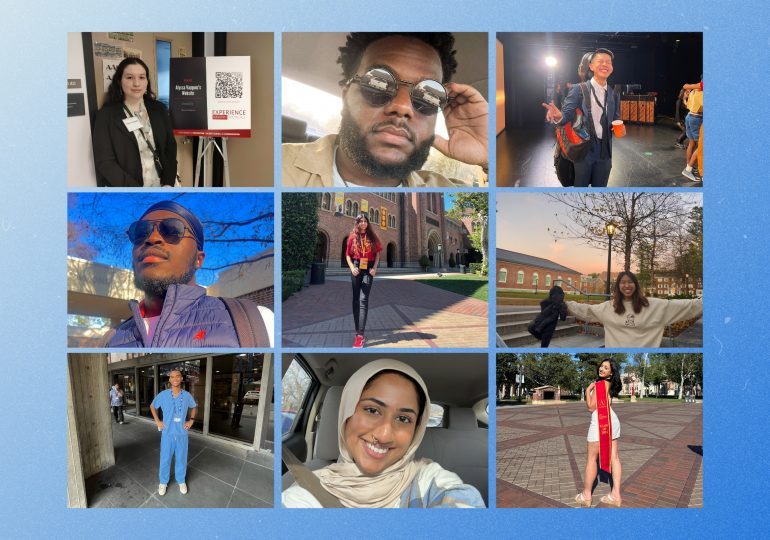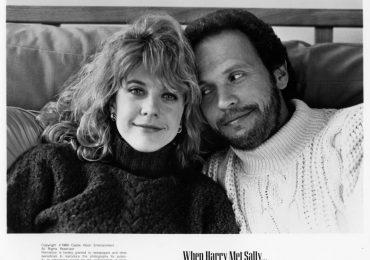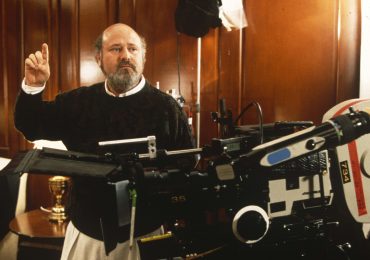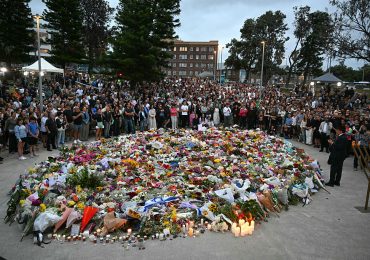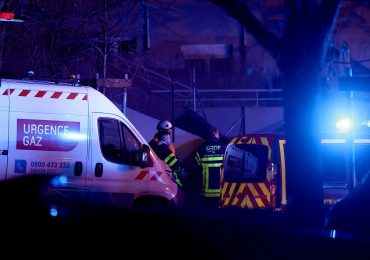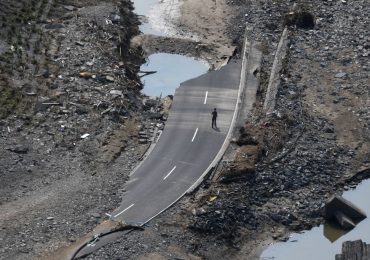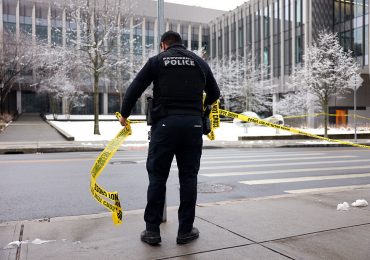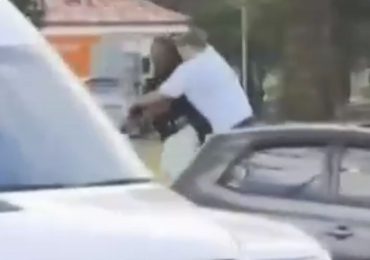If you ask the class of 2024, they will tell you: college was nothing like the movies made it out to be.
It was during some of the hardest days of the COVID-19 pandemic in 2020 that they said goodbye to their high school classmates at social-distanced graduations before embarking to college—on Zoom.
Even after they were able to move into dorm rooms and attend classes in lecture halls, many say that the impact of a virtual freshman year still lingered. “There’s a pretty stark difference in the graduating class of ‘24 and the classes that were before us and the ones that are after us,” says Dylan Blackett, a neuroscience major at Pomona College. “We’re a little more closed off, a little more insular.”
[time-brightcove not-tgx=”true”]
In their final weeks of college, as pro-Palestinian protests have rocked more than 100 campuses across the country, many are finding their schools at the center of national attention and their college experience disrupted once again as graduation approaches. “Right now, I believe that doing the right thing means covering what’s happening,” says Taylor Contarino, a senior at University of Southern California (USC) who has been forgoing the typical graduation celebrations to cover campus protests as a student journalist. “If [the choice is] covering a protest that will go down in history one day or drinking a gin and tonic at the bar— I know which one I’m picking.”
TIME spoke with graduating seniors as they reflected on their unique college experience—and the lessons they hope to carry forward. The following interviews have been lightly edited and condensed.
Fatima Usman is majoring in elementary education at DePaul University. Usman felt that adjusting to campus without events like orientation to ease the transition made the change more of a challenge.
“I can’t help but be a little bit bitter towards the freshmen because I look at them and I see how easy it is for them. But when I came [on campus] in the middle of sophomore year, I had to start fresh. There were no events for us [to transition into college]. It was just alright, let’s pretend as if that never happened. I was 20 taking baby steps into this new world.”
Dylan Blackett is a neuroscience major at Pomona College. Like many people, he was forced to go through the grieving process remotely during the pandemic.
“I had this friend who I met virtually, also a freshman, and we had been lab partners both semesters. At the end of my spring semester, she was in a car accident. I got an email from my school saying that she passed away.
It was honestly so shocking. And it was really weird because, had I ever met this person in real life? No. I knew her through a screen.
There was so much loss during that time and I think that for so many people including myself, that loss and that grief had to be dealt with alone. “
Isaac Yu is an American Studies major at Yale University. When he took on a leadership position in the student newspaper, he was tasked with keeping old traditions alive without knowing what they were.
“We lost a lot of institutional memory—there’s traditions that just don’t happen anymore. The group of people that initiated me [into the Yale Daily News] had not had a regular initiation because of COVID and then the year after that I was the one doing the initiation, but I felt like I was pretending like I knew what was going on. I taught a lot of first-years how to fold a newspaper hat because they did it on Gilmore Girls—no one taught me how to do that.
We realized we were going to have to decide what this tradition looks like for us now. There’s no way to stick to what used to be because we don’t have memories of it.”
Victoria Caputo is a communications studies major at the University of Miami. While she didn’t have the college experience she once built up in her head, the pandemic led her down a new path.
“I’m from a small town where everybody would join a sorority. My plan was to just get my degree and be a teacher. I rushed in the fall of my freshman year at Quinnipiac, and I was initiated into Alpha Chi Omega. Everything was virtual.
Almost all of my classes were online [at Quinnipiac], so I didn’t get the campus experience. I decided to transfer after my first year to the University of Miami because some of my friends went to school in Florida and they weren’t as strict. They didn’t have my [sorority] chapter here, and I wasn’t allowed to re-rush because I was already initiated into another one. It changed my perspective on my education and my extracurriculars a lot. I joined the cheerleading club, the pre-law fraternity. I assisted in implementing the Italian Student Association. I’m a member of the National Society of Leadership and Success. I joined the debate team, which I could have never pictured myself on. Now I’m going to law school.
A lot of students who were like me in high school never really utilize or take advantage of all the opportunities in college. Although COVID threw off my plan of staying close to home, being in a sorority, I got to experience a new city and meet people from all over the world and join new organizations that I really never would have.”
Alyssa Vazquez studied strategic communications at the University of Houston. As the first in her family to go to college, Vazquez says navigating the transition to college virtually was especially tough.
“Everyone obviously has a certain vision in mind of how college is going to be. I would say I only got like 25% of that vision.
I remember right before I started classes in early August, I was so nervous. I’m a first generation [college] student, so there was no one that I could lean on. Where do I go? How do I access these resources? Who do I talk to?
It was even worse, I would say, compared to if I was actually going in person. I was just 10 times more stressed out and in a way lonely.”
Ezra Snell is a sociology major at Jackson State University. Living in a dorm during lockdown was an isolating experience, he says, but it gave him an opportunity to slow down and reflect.
“It almost feels like I had three years of college instead of four. My freshman year was so drastically different, and who I was as a person was so drastically different. I was completely alone. But I never really gave up hope that things could change. I accomplished a lot of things I wanted to do in college later on. A lot of things were delayed but not denied.
Trying to reinvent yourself as an 18-year-old can come with some dumb decisions. I didn’t have the opportunity to make some of the dumb decisions I would have if we weren’t under lockdown. I appreciate that. I was able to establish who I wanted to be.”
Maggie Wong is majoring in Computer Science and Mathematics at Bowdoin College. In fall of 2020, her classroom looked a little different than she expected.
“Most of my first year was remote, except for one class. It was our first-year seminar and I had class on the bleachers of a football field which was quite unique. And then when it got colder, we had class in a locker room. It was newly renovated, but still.
During my first year, I had not been to any of the classrooms. So when I was a sophomore, I still felt like a first-year. I would use Google Maps every now and then just to make sure I was getting to the right place.”
Reuben Laryea is a neuroscience major at Christopher Newport University. A pre-med student battling pandemic boredom, he joined the frontlines as an EMT before beginning college.
“During [the pandemic], physicians and first responders were at the frontlines. I knew I wanted to be a physician, but I felt really helpless. I decided to get my certification and become an EMT.
When I moved to college, I joined a different fire station closer to my school, and I just served as much as I possibly could. It was really just trying to give back and be helpful during that whole time.”
Taylor Contarino is a journalism major at the University of Southern California, where, amid ongoing pro-Palestinian protests, administration recently moved to cancel graduation after students protested the cancellation of Muslim student Asna Tabassum’s valedictorian speech. (The university said it canceled the ceremony due to “substantial risks relating to security and disruption.”) From beginning to end, Contarino says her college experience has been a lesson in looking at the bigger picture.
“I will have another untraditional graduation ceremony. But I think what I have to remember is that there are bigger things going on in the world. On the other side of the world, people are dying. I’m trying to find a way to celebrate, but still be mindful and self-aware. How do I celebrate the biggest thing that’s ever happened to me while [it feels like] the world is burning? I don’t know.
It’s true that [my class] has been through a lot. We’re strong enough to handle it all. And we are strong enough to realize that there are bigger things going on in the world than just what we’re facing right now in our lives.”
Leave a comment
